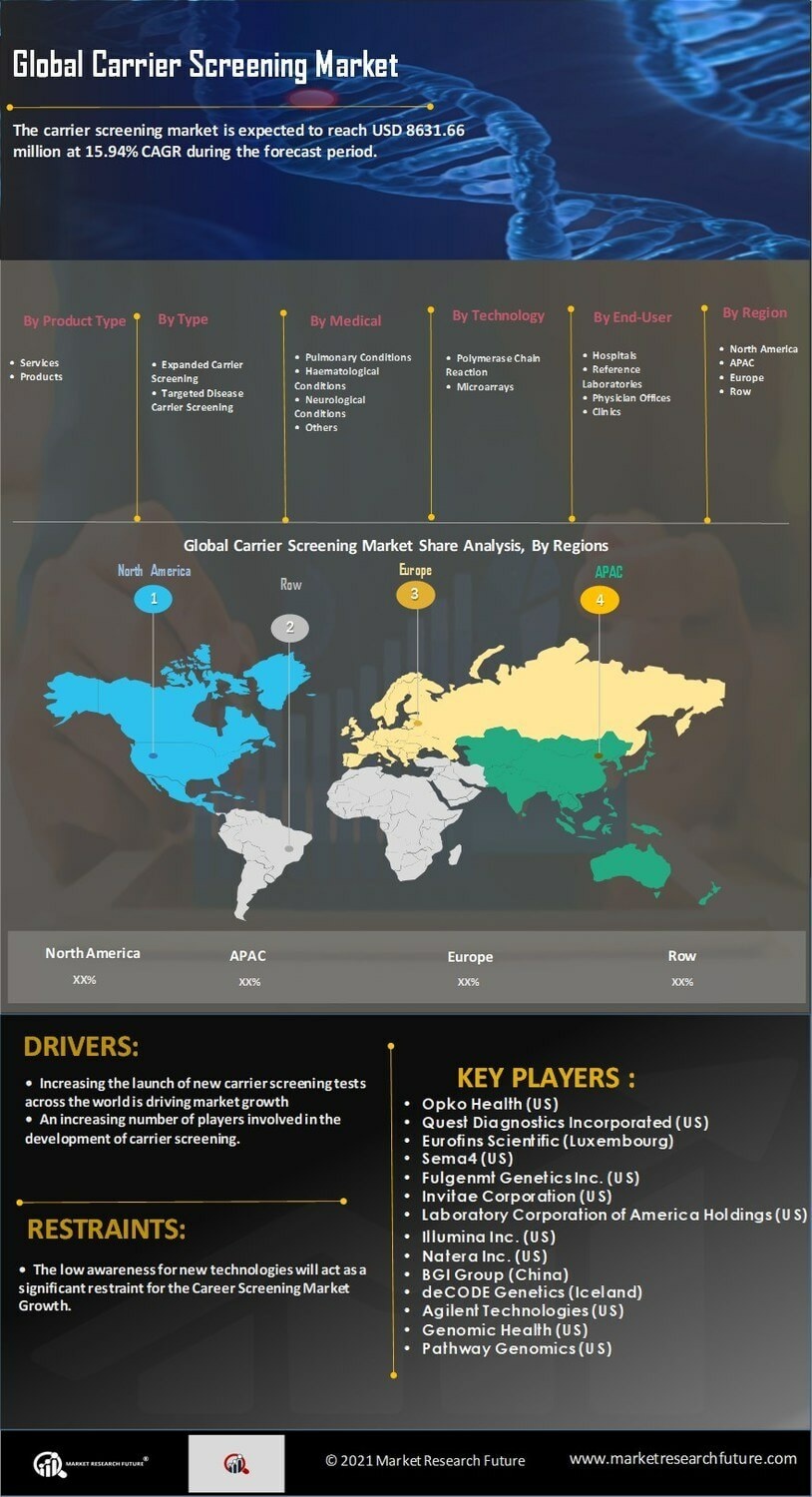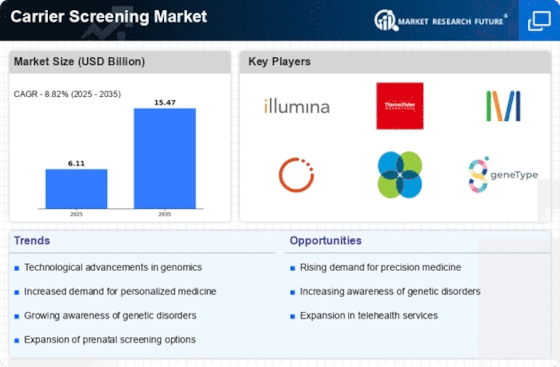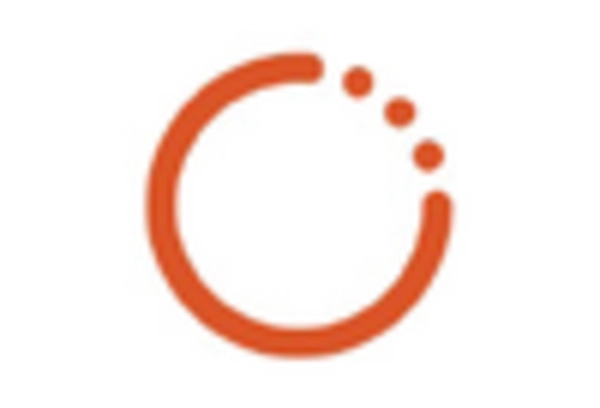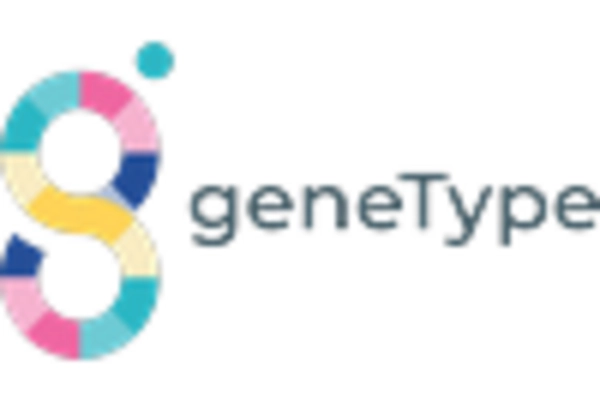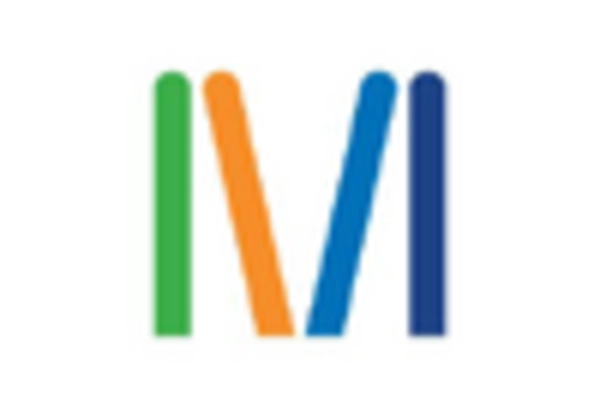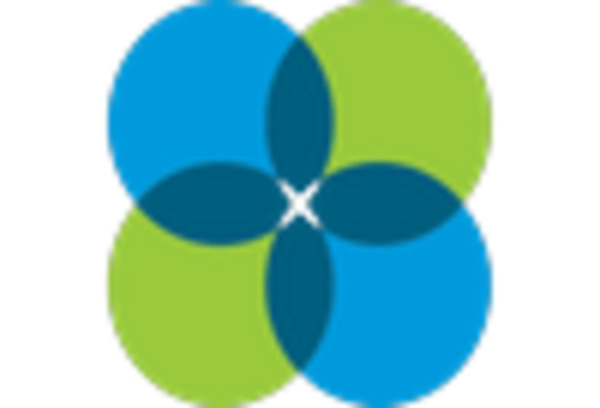Increased Awareness and Education
The Carrier Screening Market is witnessing a surge in demand driven by increased awareness and education regarding genetic disorders. Public health campaigns and educational initiatives by healthcare organizations are informing individuals about the benefits of carrier screening. This heightened awareness is particularly evident among expectant parents and individuals planning families, who are increasingly seeking information on genetic risks. According to recent surveys, nearly 60% of prospective parents express interest in carrier screening, indicating a growing recognition of its importance. This trend is likely to propel the market forward, as more individuals opt for screening to make informed reproductive choices.
Rising Incidence of Genetic Disorders
The Carrier Screening Market is experiencing growth due to the rising incidence of genetic disorders worldwide. As the prevalence of conditions such as cystic fibrosis, sickle cell disease, and Tay-Sachs disease continues to increase, there is a growing demand for carrier screening to identify at-risk individuals. Recent statistics indicate that approximately 1 in 25 individuals are carriers of genetic disorders, underscoring the need for widespread screening. This trend is likely to drive the market as healthcare providers emphasize the importance of early detection and prevention strategies. Consequently, the carrier screening market is projected to expand significantly in response to these rising health concerns.
Integration of Digital Health Solutions
The Carrier Screening Market is being positively influenced by the integration of digital health solutions. Telehealth platforms and mobile applications are facilitating easier access to genetic testing services, allowing patients to receive carrier screening from the comfort of their homes. This shift towards digital health is particularly appealing to younger generations who prefer convenient and accessible healthcare options. As a result, the market is expected to expand, with a projected increase in telehealth consultations for genetic testing by over 30% in the coming years. The convenience offered by these digital solutions is likely to enhance patient engagement and increase the overall uptake of carrier screening.
Regulatory Support and Reimbursement Policies
The Carrier Screening Market is benefiting from favorable regulatory support and evolving reimbursement policies. Governments and health authorities are increasingly recognizing the value of carrier screening in preventing genetic disorders, leading to the establishment of guidelines that promote its use. Additionally, many insurance providers are beginning to cover the costs associated with carrier screening, making it more accessible to a broader population. This shift in policy is expected to drive market growth, as financial barriers are reduced. It is estimated that by 2026, reimbursement for carrier screening tests could increase by 25%, further encouraging healthcare providers to recommend these tests to patients.
Technological Advancements in Genetic Testing
The Carrier Screening Market is experiencing a notable transformation due to rapid technological advancements in genetic testing. Innovations such as next-generation sequencing (NGS) and CRISPR technology are enhancing the accuracy and efficiency of carrier screening tests. These advancements allow for the simultaneous analysis of multiple genes, significantly reducing the time and cost associated with testing. As a result, the market is projected to grow at a compound annual growth rate (CAGR) of approximately 10% over the next five years. Furthermore, the integration of artificial intelligence in data analysis is expected to improve the interpretation of genetic data, thereby increasing the adoption of carrier screening among healthcare providers and patients alike.
